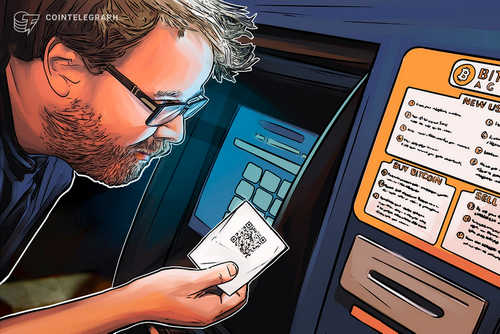According to the Q3 2019 report published on Aug. 29, the firm operated at an average monthly deficit of $186,000 during the first quarter of the year.
Electric Coin Company (ECC), the firm behind privacy-centric cryptocurrency Zcash (ZEC), reported financial losses in Q1 2019.
The company reportedly was receiving 6,157 ZEC per month and 2,000 ZEC for employee compensation. Considering the average coin price during that time frame, it is equivalent to about $449,000.
Operating at a loss
The firm’s monthly expenses, on the other hand, were “approximately $635,000 including employee compensation paid in ZEC at the Q1 … price of roughly $55.” Still, ECC’s overall holdings ended up increasing:
“The company’s first quarter ending amount of USD and Zcash was approximately $5.2M. The company currently holds approximately $6.4M worth of USD and Zcash.”
The ECC is looking for funds
Electric Coin Company CEO and Zcash co-founder Zooko Wilcox discussed the possibility of the ZEC development fund renewal in a letter published in July.

As Cointelegraph reported, United Kingdom-based customers of Coinbase are being informed that the exchange will be dropping support for the privacy-focused Zcash.
Crypto News From the Spanish-Speaking World: Aug. 24-31 in Review
The Spanish-speaking world saw a number major developments this week, with several companies accepting cryptocurrencies as a form of payment and the Venezuelan government making new claims about the use and acceptance of the controversial Petro coin.
Here’s the past week of crypto and blockchain news in review, as originally reported by Cointelegraph en Español.
Spain: Eurocoinpay introduces cryptocurrency payments
On Aug. 24, Cointelegraph en Español reported that in Spain, Eurocoinpay introduced the possibility of making payments and collections with cryptocurrencies, through an application to make transactions in various shops. The firm’s CEO, Herminio Fernández, reportedly said:
“Eurocoinpay is a cryptocurrency payment and collection platform whose app, available for Android and Apple, allows you to pay and collect with the cryptocurrency you choose on a daily basis in restaurants, supermarkets or other shops. It also allows customers to make and receive micropayments, as well as send funds to any part of the world with cryptocurrencies, automatically and in real time.»
Venezuelan government: more than 7 million people are saving in Petro
Venezuela’s Superintendent of Cryptoactives, Joselit Ramirez, announced on Monday, Aug. 26, that the “Petro Savings Plan” is being used by 7 million Venezuelans within the national economy, and that about 12 million operations have been carried out with the Petro cryptocurrency within the system.
«It is guaranteed that the money will not depreciate,» Ramírez said when he finished his presentation on the weekly radio program of the state radio RCN called «Venezuela in Crypto.»
The remittance platform called “Patria Remesas”, will allow citizens working abroad to send money to Venezuela.
Given the Venezuelan government’s history of not delivering on promises related to the Petro, Cointelegraph advises readers to approach Ramírez’s announcement with skepticism.
PayPal changes policies in Mexico to avoid fintech regulation
On Aug. 30, Cointelegraph en Español reported that in Mexico, the multinational payment processing company PayPal is about to change its policies, just when the deadline for authorizations of the Fintech Law expires.
These policy changes mean that PayPal won’t allow its clients to store any balances in their PayPal accounts, which the company hopes will exempt PayPal from qualifying as a payment processing company and being regulated through the Fintech Law.
Popular Venezuelan pharmacy starts accepting crypto payment
Farmarato, a popular Venezuelan pharmacy, announced on Aug. 30, that with the use of Cryptobuyer Pay, it would be accepting cryptocurrencies such as Bitcoin, Dash, Litecoin (LTC), and Binance Coin (BNB). The pharmacy has as well enabled a wallet for each of these coins in order to receive donations for medicines to Venezuelans in need.
Javier Rojo, CM de Farmarato, added that the pharmacy was also «thinking of those people who are outside of Venezuela and have their families here. People abroad can pay with cryptocurrencies so that their families in Venezuela receive the medicines.”


